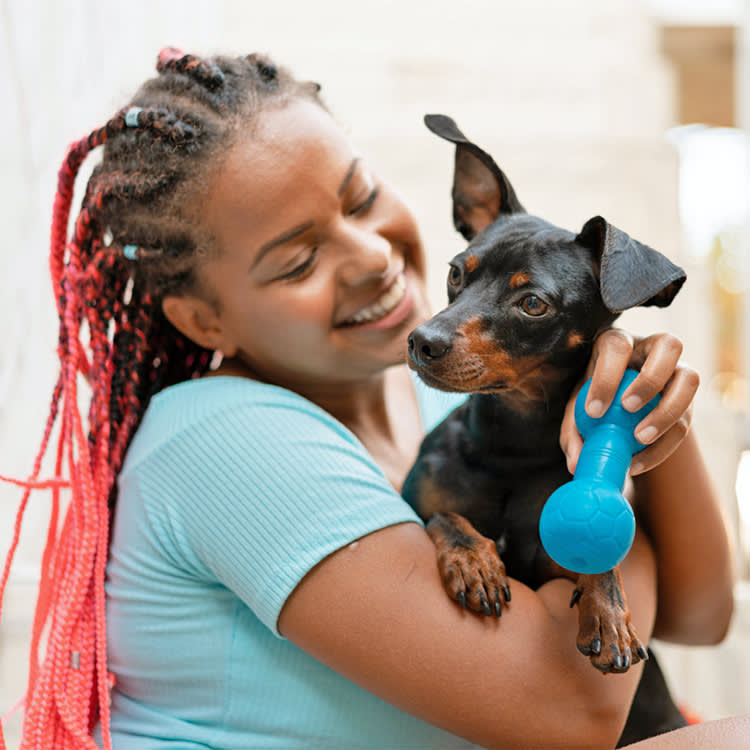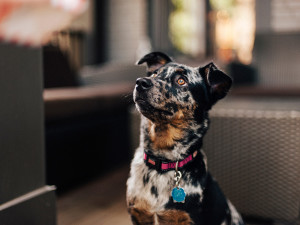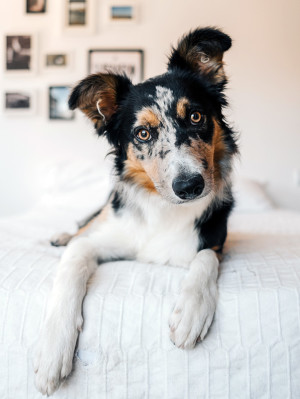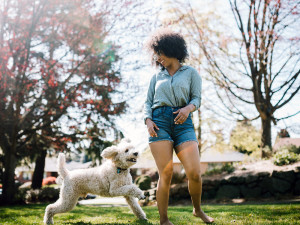Dogs Can Remember Names of Toys 2 Years After Seeing Them, New Study Finds
Some dogs have impressive long-term memories.

Share Article
For as much time as we spend gazing into our dogs’ sweet puppy eyes, it can be hard for us to tell what’s actually going on in those adorable noggins. We know that dogs are pretty clever; we wouldn’t have to spell out “W-A-L-K” and “O-U-T” if they didn’t have some social awareness, after all. But exactly how deep does their knowledge of language go — and how long can they remember a word once they’ve learned it?
In a new studyopens in new tab published in Biology Letters, researchers explored the long-term memory abilities of dogs and found that some dogs can remember the names of toys that they haven’t seen in two years.
Dogs remember the names of their toys
The study included five gifted word learner (GWL) dogs. Gifted word learner dogs are pups who are able to learn object labels — these smartiesopens in new tab can learn over 100 words (Chaser, a Border Collie who’s pretty much the Einstein of the dog world, learned over 1,000opens in new tab, but he’s an outlier).
Each of the dogs were able to learn the names of 12 toys over one week. The toys were then stored out of the dogs’ reach for two years. One day before the test, the dogs were given back each of the toys at once and allowed to investigate them.
On the day of the test, six randomly selected toys were placed on the floor along with eight other toys from the dogs’ toy inventory. The pet parents then asked their dog to retrieve a toy based on the name the dog had learned two years earlier. Each toy was requested twice.

“Our findings show that, after initial consolidation, most of the GWL dogs tested in this study maintained the object-label mappings over a two-year time period, without any further rehearsal,” wrote the study’s lead author, Shany Dror. Four out of the five dogs were able to remember the names of between three and nine toys.
Why these findings matter
The results of the study show that dogs don’t just retain information through their pet parents repetitively refreshing their memories; they actually learn names and store the labels in their long-term memory. The researchers guess that results would have been even better if the dogs had been exposed to fewer labels to begin with and given more time to learn each name.
“In humans, high performance in verbal memory tasks has been associated with high-performance in other memory tasks, such as visuospatial memory and autobiographical memory, and other cognitive domains, such as executive functioning,” Dror wrote. They hope to explore further research on dogs to find if an advanced verbal memory also correlates with other cognitive abilities.
Learning about how dogs’ memories work can help us understand our own memories and language acquisition, too. “Why is language uniquely human? To understand that, we need to understand what parts of language are available in other animals and which parts are not,” Dror told opens in new tab The Guardian.
They add the caveat that since not all dogs are able to learn object labels the way these gifted word learners are, the results don’t necessarily apply to all dog populations.
Researchers also found that the dogs with the sharpest memories were the ones whose pet parents were able to spend the most time practicing the original labels with them. “The more you invest in your dog, the more you will get back from the relationship,” Dror told The Guardian.

Sio Hornbuckle
Sio Hornbuckle is the Assistant Editor at Kinship, where they frequently write for the site. As a writer, they specialize in pet news, animal science, and pop culture. They live in New York City with their cat, Toni Collette.
Related articles
Do Dogs Understand Our Words?
Say What? A look at the types of words that dogs understand.
![Woman sitting with her dog outdoors]()
How to Talk to Your Dog, According to Science
Baby talk works on puppies. As for adult dogs, that’s still up for debate.
Is My Dog Lonely? Experts Weigh In On If Your Dog Would Be Happier With Another Dog
Pets reduce loneliness in humans, but sometimes it’s hard to tell if things work the other way around.
![Portrait Of A Border Collie Dog.]()
Is Your Dog a Genius? A New Study Says It’s Possible
If only there were dog Jeopardy!.
![]()
What Are Dog Communication Buttons? And How to Use Them
Cognitive Science professor Dr. Federico Rossano on how Bunny, TikTok’s “talking” dog, is sparking change in how we communicate with our pets.
![A woman with curly black hair playing with her white labradoodle dog outside]()
7 Games That Can Actually Teach Your Dog Something
Cue the Schoolhouse Rock! because learning can be fun.






